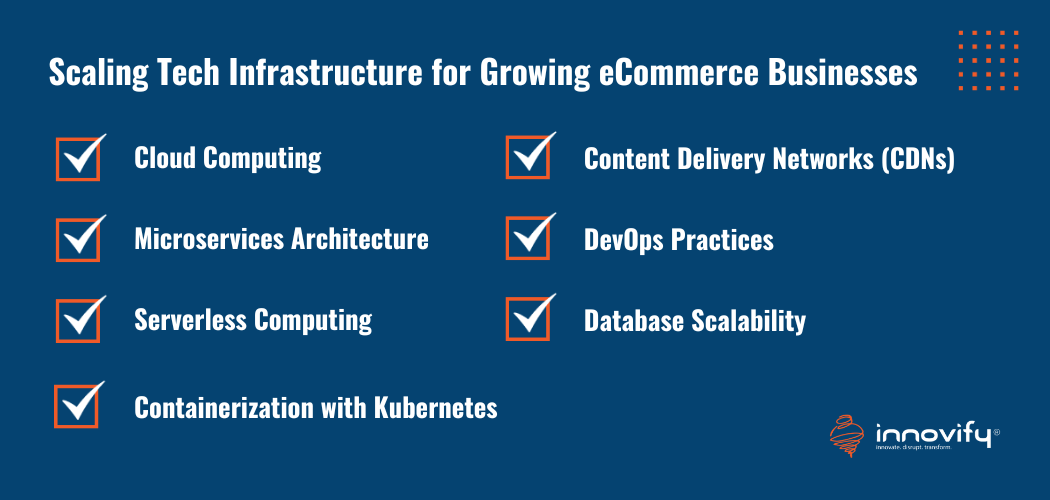AI/ML
Beyond Limits: Scaling Tech Infrastructure for Growing eCommerce Businesses
Introduction
As eCommerce businesses chart the course for growth, the foundation of their success lies in a scalable tech infrastructure. This blog unravels the complexities of technology infrastructure scaleup, offering insights into the latest technologies and strategies that empower eCommerce & Retail businesses to expand seamlessly and thrive in the competitive digital transformation.
The Imperative of Scalable Tech Infrastructure:
As eCommerce businesses evolve, so must their tech infrastructure. A scalable foundation ensures that as the business grows, the technology supporting it remains robust, responsive, and capable of handling increased demands, transactions, and data.
- Cloud Computing – The Pillar of Scalability:
Embracing cloud platforms such as AWS, Azure, or Google Cloud provides businesses with the agility to scale resources based on demand. The pay-as-you-go model allows for cost-effective scalability, eliminating the need for substantial upfront investments. - Microservices Architecture – Building Blocks for Agility:
Microservices architecture breaks down monolithic applications into smaller, independent services. This modular approach enhances agility, as each component can be developed, deployed, and scaled independently. Microservices are integral to achieving scalability without compromising performance. - Serverless Computing – Effortless Scaling at Its Core:
Serverless computing allows eCommerce businesses to focus on code without the hassle of managing servers. By only paying for the actual compute time, serverless architectures enable automatic scaling, responding to fluctuations in traffic without manual intervention. - Content Delivery Networks (CDNs) – Accelerating Global Reach:
As eCommerce businesses expand their reach globally, CDNs become indispensable. CDNs distribute content across a network of servers, reducing latency and ensuring fast loading times for users worldwide. This not only improves user experience but also aids in scaling infrastructure for international markets. - DevOps Practices – Bridging Development and Operations:
DevOps practices foster collaboration between development and operations teams, promoting automation and continuous integration/continuous delivery (CI/CD). These practices streamline the deployment pipeline, allowing for faster, more reliable updates and scalability enhancements. - Containerization with Kubernetes – Orchestrating Scalability:
Containerization, particularly with orchestration tools like Kubernetes, simplifies the deployment and scaling of applications. Containers encapsulate applications and their dependencies, providing consistency across different environments and facilitating efficient scaling. - Database Scalability – A Crucial Piece of the Puzzle:
Scaling the database layer is paramount for eCommerce businesses dealing with vast amounts of transactional data. Technologies like sharding (it is a method for distributing a single dataset across multiple databases, which can then be stored on multiple machines), horizontal scaling, and distributed databases ensure that the database infrastructure scales seamlessly alongside the application layer.
Conclusion:
In the dynamic realm of eCommerce, scalability is not a luxury but a necessity. A well-orchestrated tech infrastructure lays the groundwork for sustained growth, ensuring that eCommerce businesses can adapt, innovate, and meet the demands of an ever-expanding digital marketplace.
As eCommerce businesses embrace the latest technologies and strategies for scalable infrastructure, they not only position themselves for current success but also build a resilient foundation for the challenges and opportunities that lie ahead in the evolving world of digital commerce.



